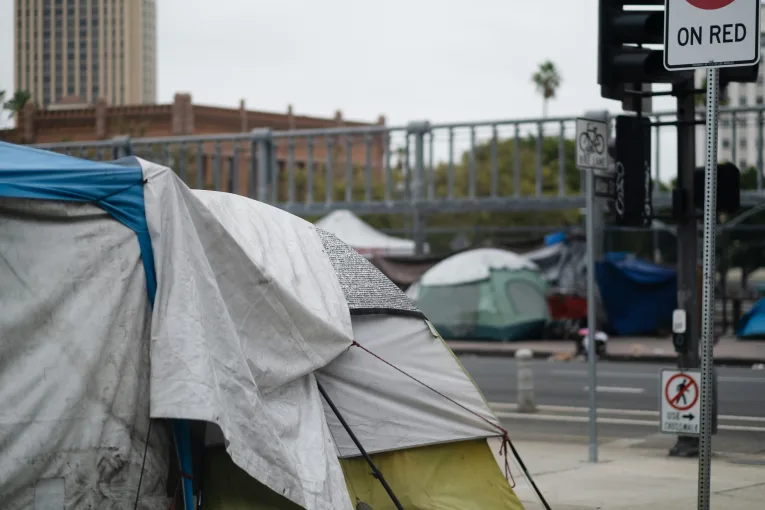
By Roxy Benson
DETROIT, MI – Honeysuckle Magazine recently highlighted the barriers preventing formerly incarcerated people from finding housing, using stories from those individuals about the discrimination they have faced when trying to find safe housing.
The article notes Sawanna Vaughn, a formerly incarcerated African American woman, founded Silent Cry, Inc. an organization that helps those who have been formerly incarcerated, by creating legislation for those impacted by the justice system, and the barriers to finding housing after release.
According to Honeysuckle Magazine, recent data has shown that “over 653,000 individuals were classified as homeless in 2023, marking a 12.1 percent increase from the previous year,” and the statistic includes formerly incarcerated people.
The story argues those made homeless are not based on individual actions but illustrate a larger societal issue that must be addressed.
Current political discourse on homelessness leaves out important measures that formerly incarcerated face that specifically pertain to their past as previously involved with the justice system, Honeysuckle Magazine states.
Homelessness is a hot-button topic that has been addressed by presidential campaigns time and time again but has failed to highlight the differences formerly incarcerated individuals face, and the call for reform has been crucial in addressing struggles in finding housing, and the discrimination, the story comments.
“Legislation like the Michigan Fair Chance Access to Housing Act is crucial in addressing these disparities. For many of us, securing stable housing is not just about finding a roof over our heads, but about rebuilding our lives and achieving stability after paying our dues to society,” wrote Honeysuckle Magazine.
The story continues, noting this specific act works to expel barriers in housing applications affecting those trying to find housing, which would allow formerly incarcerated people to have an equal chance of finding housing while also empowering individuals through rehabilitation practices instead of continuing to punish someone for their past.
Antoniese Gant, someone who has faced these specific barriers, states in Honeysuckle Magazine, “Despite being financially capable and eager to secure stable housing, I have struggled due to a criminal record from years ago.”
He notes the Michigan Fair Chance Access to Housing Act is monumental in addressing the issues as well as challenging the trend of barring formerly incarcerated people from having a fair chance at housing.
The story also features Ucedrah Osby, a woman who has been affected by discriminatory practices when trying to find housing. Osby worked hard towards improving her credit to secure housing, but that changed when a background check was run, and she was denied housing.
“Housing should be a basic human right, not a privilege contingent on one’s past mistakes. The continued use of background checks in housing applications reflects an outdated and unfair system that fails to account for an individual’s current situation or their potential for rehabilitation,” Osby said in Honeysuckle Magazine.
The last narrative included in the article Minerva Coffie who was unable to secure an apartment in Section 8 housing, before being convicted and sentenced, and when released in 2018 she discovered that she was still on the waiting list.
Coffie said, “The stigma and barriers faced by people like me, justice-impacted individuals, made it incredibly difficult to secure housing. No one wanted to rent to us,” noting this is a larger problem indicative of the systemic discrimination making housing unable to obtain.
Honeysuckle Magazine stresses the importance of fighting unfair practices that many formerly incarcerated people face when trying to find housing, adding, “We must advocate for changes in housing practices to remove discriminatory barriers and ensure that everyone, regardless of their past, has a fair chance at securing a stable and dignified living situation.”